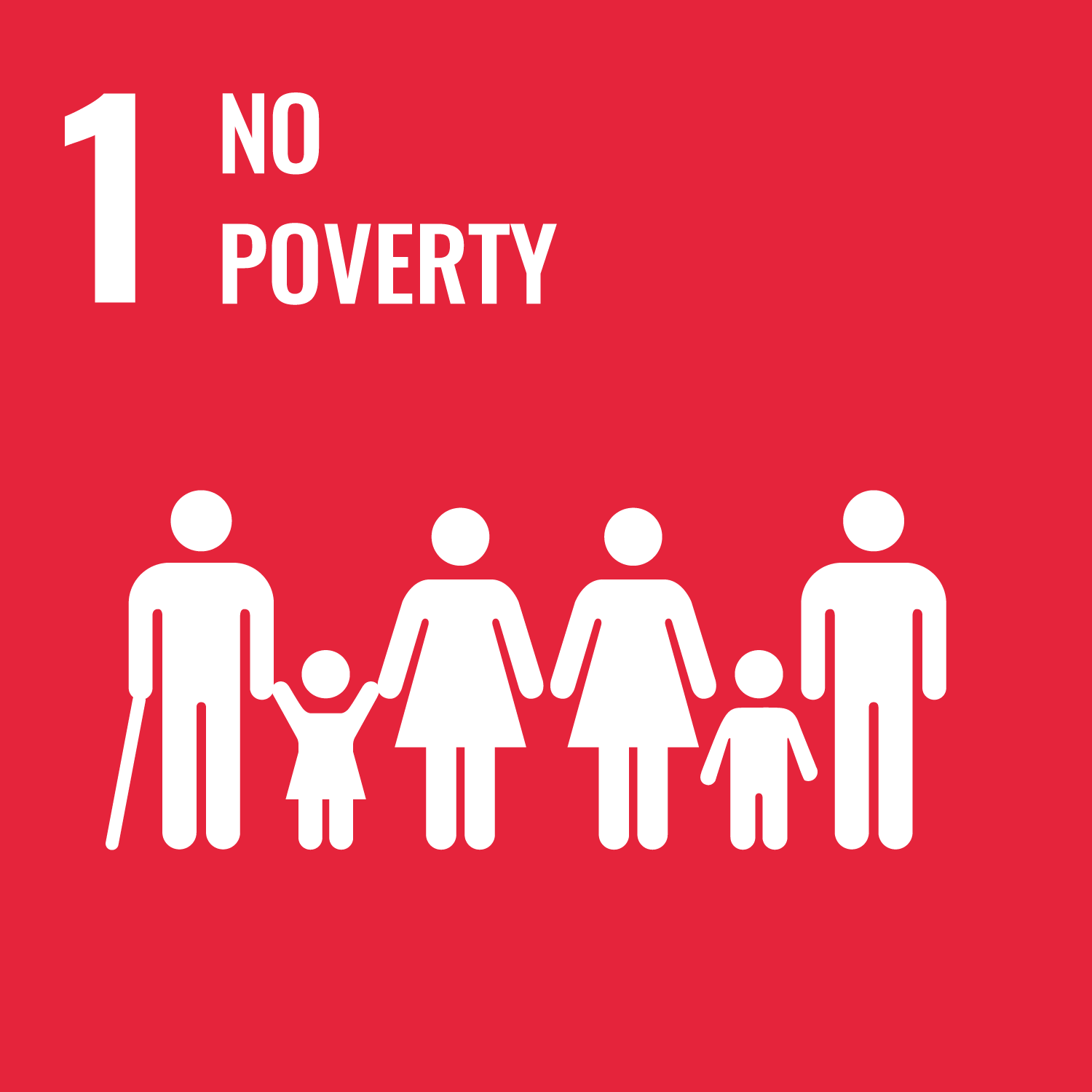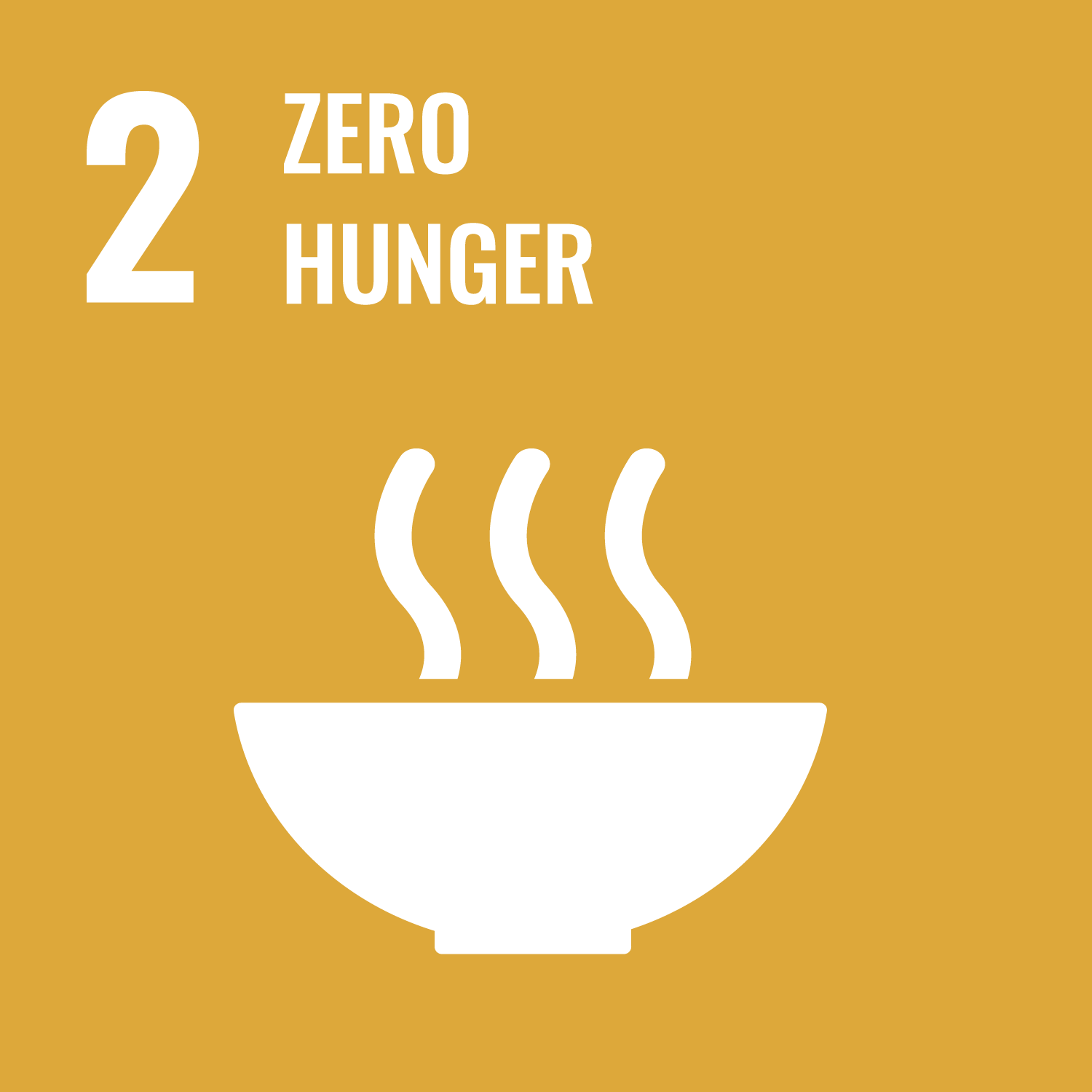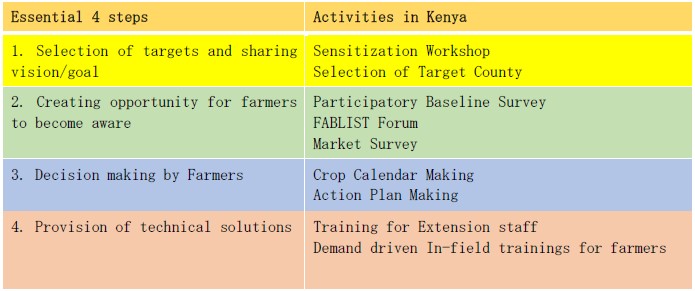When it comes to cooperation projects which aim at increasing income of farmers, it is key to raise farmers’ willingness to improve their own farming as well as develop infrastructure, and provide farming funds and technical transfers.
JICA is working with other development partners to improve the livelihoods of 1 million small-scale farmers using agricultural extension approach called SHEP.
1. What is SHEP?
Have you ever heard of SHEP (Smallholder Horticulture Empowerment & Promotion, or market-oriented agricultural promotion)? It is an agricultural extension approach that respects the autonomy of small-scale farmers and aims to improve their income, and the approach is currently spreading to about 60 countries around the world.
JICA, together with the International Fund for Agricultural Development (IFAD), the Sasakawa Africa Foundation, and Japanese trading companies presented the Joint Declaration for Achieving Better Lives of One Million Small Scale Farmers through SHEP Approach
at a side event of the Tokyo International Conference on African Development (TICAD) in August 2019.
Approximately 800 million people in the world do not have enough food, and 80% of those suffering from poverty and hunger live in rural areas. In addition, many of them are small-scale farmers without sufficient income. In this issue, I would like to explain the SHEP approach that JICA is working on to improve the livelihoods of small-scale farmers.
Many developing countries have set a "market-oriented agricultural promotion" as one of their agricultural policies. This policy aims to increase the income of small-scale farmers who have been self-sufficient by giving them access to markets to sell their agricultural products. SHEP offers a simple, feasible, and concrete solution to this situation.
2. Why small farmers cannot escape poverty
Why is it so difficult for small-scale farmers to increase their income in the first place? The challenges faced by small-scale farmers are diverse. Governments of developing countries and many donors involved in agricultural development have identified problems such as lack of infrastructure, lack of funds for farming, and lack of cultivation techniques, and have provided support to compensate for these deficiencies, but even so, the lives and incomes of farmers have not improved easily. Therefore, many farmers from rural areas have given up farming and moved to cities without much expectation of job opportunities. It is true that there are shortages of various "things", but what is even more lacking is farmers’ confidence that they can become prosperous through farming, while understanding market trends on their own, and producing and selling their products incorporating the needs of the market. In other words, it is a “motivation to farm” (trying to improve the current situation).
SHEP stimulates this “motivation to farm” to improve their farming through dialogue with the market. Specifically, SHEP advocates proceeding with agricultural extension activities based on four steps (see figure), and one of the most important steps is "creating opportunities for farmers to become aware" and one of the typical activities is "market survey by farmers themselves”.
In fact, small-scale farmers often do not fully understand the principles of the market, specifically how prices can vary greatly depending on season, variety, size, appearance, quantity, etc. This is because self-sufficient farmers have few opportunities to buy agricultural products at the market and often rely solely on information from middlemen who come to their field to buy. Therefore, when farmers themselves visit markets and gather information with their own eyes and ears, they will experience many "surprises”. Through these "surprises," farmers realize that they can make a profit if they are creative, and this becomes the driving force that motivates them to do farming as business. In conventional small-scale farmers support programs, researchers and extension workers tended to transfer technologies that they thought were good to farmers, but farmers did not often actively adopt these technologies. Because farmers did not realize that adoption of new technologies were directly linked to income increase, and awareness of improving their farming through introducing new technologies was not fostered. SHEP has dramatically changed farmers' attitudes toward farming by creating "awareness opportunities” for farmers to adopt new technologies and to produce and sell products that meet market needs. An impact evaluation study in Kenya demonstrated that farmers who adopted SHEP increased their incomes by an average of 70% over a two-year period, compared to other general farmers.[1] However, the greater significance is the change of farmers’ behavior, because this behavioral change is irreversible and is expected to lead to sustainable livelihood improvement.
3. "Normalization" of SHEP
I first had the opportunity to learn about the SHEP approach in December 2016, and my first impression of SHEP was "Columbus Egg": what SHEP advocates is obvious, but until now no one had focused on its importance, or at least not practiced it in a methodologically established way like SHEP.
Currently, JICA is launching the mainstreaming of SHEP in smallholder support, or the "normalization" of SHEP, and is working with various partners such as the International Fund for Agricultural Development (IFAD) to spread this approach as a matter of course in smallholder support projects in developing countries.
One of SHEP's slogans is "No Fun No SHEP," and when we visited farmers in rural areas where SHEP is being implemented, they were happy and proud to talk about their farming strategy. SHEP has proven that agriculture can be an attractive industry with creativity and ingenuity. In Japan, where is suffering from a shortage of successors of farmers, in fact SHEP-like ideas may be what is needed now.
Figure: Four steps of agricultural extension based on SHEP (prepared by JICA)








scroll